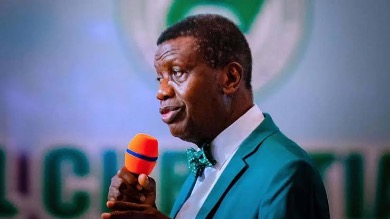
Femi Falana Criticizes Pastor Adeboye for Running Business Centers Instead of Churches
Prominent human rights lawyer, Femi Falana, has taken a strong stance against Pastor Enoch Adeboye, the General Overseer of the Redeemed Christian Church of God (RCCG), accusing him of operating more as a businessman than a religious leader. During an interview with Sahara TV, Falana voiced his growing concern about the increasing commercialization of religion in Nigeria, a trend he believes is undermining the core values of faith-based institutions.
Falana’s comments were sparked by a recent statement made by Pastor Adeboye, in which the pastor outlined his intentions to expand the Redeemed Christian Church of God across Nigeria. According to Adeboye, the goal is to make sure that Nigerians have easy access to a church, with locations available within walking distance of their homes. While the idea may seem noble in its effort to spread religious presence, Falana expressed skepticism, suggesting that the push for more churches was indicative of a shift towards business operations rather than spiritual missions.
This is not the first time Adeboye has been at the center of controversy. The pastor has made headlines in recent weeks for comments that some critics have found questionable. One of his most talked-about statements occurred during the Special Holy Ghost Congress in Abuja, where he credited Nigeria’s current exchange rate stability to divine intervention. According to Adeboye, his prayers and those of his followers helped avert a potential disaster in the country’s economy, warning that without this divine intervention, the naira could have plummeted to an alarming rate of ₦10,000 to $1.
Adeboye’s remarks about the exchange rate have drawn mixed reactions, with some supporters praising his spiritual insight, while others, like Falana, argue that such statements blur the lines between religious practice and economic policy. Falana’s criticism centers around the broader issue of religion being turned into a business enterprise, with leaders like Adeboye appearing to focus more on expanding their institutions rather than on the welfare of their congregations.
The debate continues to stir discussion, as religious leaders in Nigeria grapple with their role in both the spiritual and economic realms. While Adeboye’s supporters defend his actions as motivated by a desire to reach more people, critics like Falana remain wary of the growing trend of commercializing faith.





